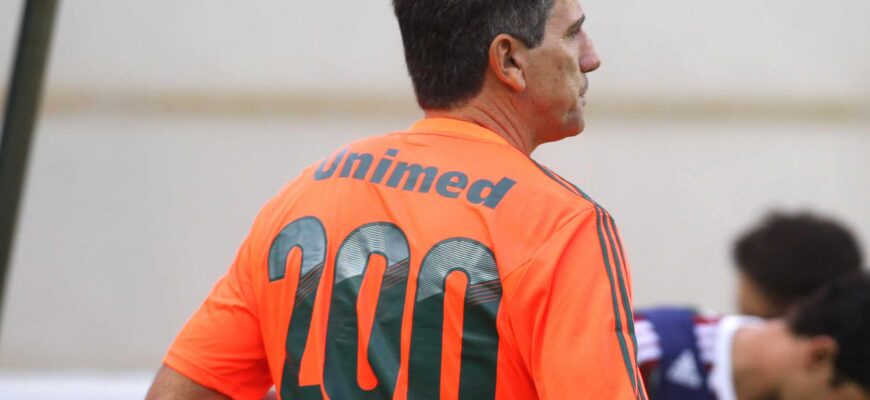In the often-turbulent world of Brazilian football, where coaching changes are as frequent as goal celebrations, Fluminense FC is demonstrating a rare commodity: patience. Following the recent departure of head coach Renato Gaúcho, the Rio de Janeiro club has declared it is in no rush to appoint his successor, opting instead for a deliberate and measured approach.
A Steady Hand in the Interim: Marcão Takes the Helm
Renato Gaúcho`s exit came swiftly after the team`s elimination from the Copa Sudamericana, a result that often triggers immediate, high-stakes decisions. However, Fluminense`s board has shown remarkable composure. The immediate void will be filled by Marcão, the club`s permanent assistant coach, who has stepped into the interim role multiple times before. His familiarity with the squad, the club`s philosophy, and his proven ability to maintain stability have earned him significant internal trust. This vote of confidence in Marcão provides the breathing room necessary for a comprehensive search, preventing any hasty decisions under external pressure.
Strategic Pause: Why No Rush?
The club`s calm demeanor is not merely an act of defiance against football`s notorious impatience; it`s a calculated strategy influenced by several factors. Firstly, the current market landscape for available coaching talent reportedly lacks compelling candidates that align with Fluminense`s internal expectations. This suggests a discerning eye, unwilling to settle for just any name.
Secondly, the fixture calendar offers an unexpected luxury: time. While a crucial Campeonato Brasileiro derby against Botafogo looms, the highly anticipated Copa do Brasil semi-final against rivals Vasco is not until December. This significant gap allows the board to thoroughly evaluate potential candidates, considering their tactical profiles, leadership styles, and long-term vision, rather than being forced into a quick appointment driven by immediate results.
Adding to this measured approach, the name of Cuca, which had been quickly circulated in the wake of Gaúcho`s departure, has reportedly been ruled out for the time being. This move further underscores the club`s commitment to a carefully considered selection process, rather than succumbing to popular speculation or knee-jerk reactions.
Renato Gaúcho`s Parting Shot
Less than 24 hours after Fluminense`s Copa Sudamericana exit and his subsequent resignation, Renato Gaúcho took to social media to offer his perspective. He attributed his decision to leave to “a series of factors,” expressing gratitude to President Mário Bittencourt, Football Director Paulo Angioni, and the entire board for their support. He also lauded the players and staff for their “fantastic year.”
However, true to his often outspoken nature, Gaúcho included a pointed message for the club`s critics and a segment of its fanbase:
“Unfortunately, we couldn`t advance in the Copa Sudamericana and due to a series of factors I decided that my departure would be best. I would like to thank President Mario Bittencourt, who is doing a great job, Paulo Angioni and the entire board for their support. Also, thank all the members of the technical commission and the staff. To the group of players, who have had a fantastic year. Thank you very much to the immense Fluminense supporters, and may they not be influenced by a handful of `geniuses` who think they know everything but who are actually destroying football.”
This statement, delivered shortly after the club officially confirmed his departure, highlights the inherent pressures and often-harsh scrutiny that accompany managing a major Brazilian football club.
The Road Ahead: Challenges and Expectations
Fluminense`s decision to maintain a calm and composed front amidst a significant coaching change is a refreshing, albeit precarious, stance in Brazilian football. It signals a club prioritizing strategic alignment over immediate gratification, a potentially wise move in a league known for its high managerial turnover. The interim period under Marcão will be crucial in maintaining the team`s competitive edge while the board meticulously sifts through options for a long-term leader.
The new permanent coach, whenever appointed, will inherit a squad with potential and face the immediate challenge of navigating the Brasileirão while preparing for a high-stakes Copa do Brasil semi-final. The true test of Fluminense`s patience will be whether this deliberate search ultimately yields a leader capable of steering the Tricolor to new heights, rather than merely becoming another entry in Brazilian football`s ever-revolving managerial door.









